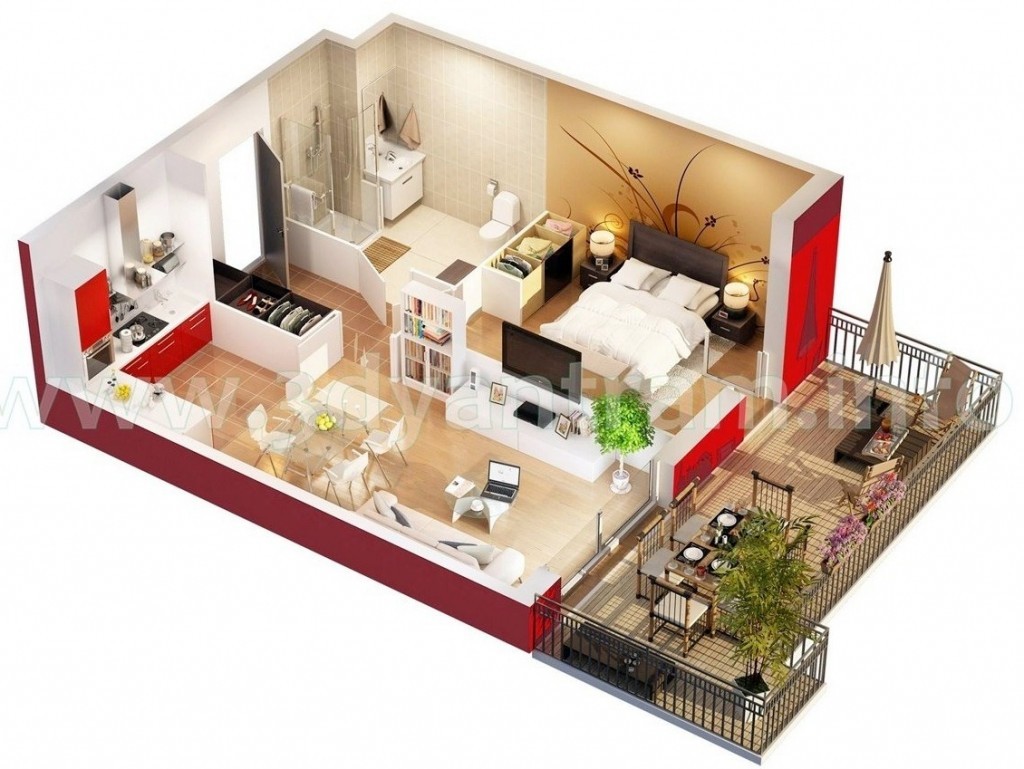In a world where space is shrinking and cities are expanding, the concept of an “edited lifestyle” is gaining popularity. And today, a real estate e‑commerce platform is making it easier than ever to explore compact living options. Edited lifestyle is a conscious decision to live with less — less space, fewer things, but more meaning. It’s about curating life to focus on what truly matters, aligning choices with sustainability, affordability, and flexibility.

Image credit: 99reality.in
Smart Homes in a Digital World: Role of Real Estate E‑Commerce Platforms
At the heart of this movement are compact living spaces like mini homes (often under 400 sq.ft.), micro apartments (typically 150–350 sq.ft.), and studio apartments (one-room units combining living, dining, and sleeping). These spaces are designed with smart, multipurpose furniture — think foldable beds, convertible sofas, wall-mounted desks, hidden storage, and vertical shelving. Designers also use mirrors, light colours, and open layouts to create an illusion of spaciousness.
The search for these homes is now simplified through real estate e‑commerce platforms and online real estate marketplaces that let users filter, visualize, and choose from optimized living spaces. The rise of real estate technology platforms has enabled better user experience, smarter listings, and detailed specifications.
Modular and Sustainable: The Backbone of Construction SaaS for Real Estate
Construction often relies on modular methods, using pre-fabricated units that reduce costs, save time, and minimize construction waste. These modular designs are increasingly facilitated by construction SaaS for real estate, helping developers and buyers alike.
Some mini homes are even mobile, allowing residents to relocate with ease. The backend is powered by real estate SaaS solutions and digital real estate transformation, ensuring efficient planning and execution of compact projects.
The Philosophy Behind Compact Living
The core philosophy is “less is more”. Compact living encourages minimalism, conscious consumption, and thoughtful design. It questions the need for excess and champions efficient use of resources — both personal and planetary. It also reflects a shift from ownership to experience, especially among younger generations and urban dwellers.
Who Is It For?
Edited lifestyle appeals to: young professionals in expensive urban centres; students and first-time renters; elderly individuals looking to downsize, and environment-conscious citizens opting for greener alternatives. It’s also ideal for people who prioritize location, lifestyle, and flexibility over square footage.
Benefits
- Budget-Friendly: Lower rent or construction costs, reduced utility bills, and fewer possessions mean greater financial freedom.
- Efficient Lifestyle: Small spaces are easier to clean, organize, and maintain, promoting mindful living.
- Environmentally Sustainable: Uses less land, water, and energy; encourages lower carbon footprints.
- Better Resource Utilization: Encourages use of shared community amenities like laundries, gyms, or kitchens.
Briefly, the Downsides
Compact living isn’t for everyone. Some disadvantages include:
- Limited privacy or personal space, especially for families
- Storage constraints, requiring strict discipline
- Zoning and legal restrictions in some cities
- Not ideal for long-term growth or expansion
Conclusion
An edited lifestyle isn’t just about living small — it’s about living smart. Thanks to innovations in real estate e‑commerce platforms, digital home buying, and construction e‑commerce software, more people can now find affordable, sustainable housing tailored to their lifestyle. Compact living, when supported by real estate technology platforms, becomes a powerful way to rethink space, redefine comfort, and embrace meaningful living in the modern world.